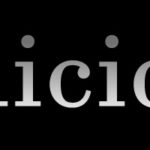
YOU ARE ACTING LIKE AN IDIOT!
The School of Life had a recent post on the “inner idiot” – the one we all shelter within. Obviously the more we accept our own idiot, the more we will accept the idiot in others.
In the coming week, when someone’s actions surprise us, we could remember today’s post and remember, “Oh, maybe I need to find the humor in this!” (Or maybe compassion.)
Good luck!
Hugs to all,
Vicki P
THE INNER IDIOT
‘The Inner Idiot’ is a bracing term used to describe a substantial, hugely influential and strenuously concealed part of everyone. An Idiot is what we deeply fear being, it is what we suspect in our darkest hours that we might be – and it is what we should simply accept, with humour and good grace, that we often truly are. A decent life isn’t one in which we foolishly believe we can slay or evade The Inner Idiot; it’s one in which we practice the only art available to us: sensible cohabitation.
The Inner Idiot makes itself felt at moments small and large. The Idiot is clumsy: it forgets names, loses important documents, spills food down its front and gets air kisses wrong. It speaks out of turn, thrusts itself forward at inopportune moments, both babbles and blushes. The Idiot is prickly, it gets into a rage because it was momentarily ignored, it sees plots against it where there was only accident, it shouts when a drawer won’t open properly and it is immediately self-righteous when faced with the most minor criticism. It is, for the Idiot, always someone else’s fault. The Inner Idiot is a child on a bad day.
We know our own Inner Idiot from the inside and might suppose it is unique to us. In fact, it represents what might be called the ‘lower’ self of all of humanity. It is only residual good manners that has made the Inner Idiot of others less obvious to us – and hence made our own seem like a freakish exception.
Much of wisdom consists in accepting that the Inner Idiot isn’t ever going to go away and realising that we must therefore endeavour to form a good working relationship with it.
Trying to prevent the emergence of the Inner Idiot otherwise inspires a range of unfortunate traits. For example, we may lose confidence and grow unnecessarily meek and cautious in a bid always to appear dignified in front of others. (…)
Or else, by denying our Idiot, we may grow unfeasibly pompous and stiff. Nothing makes us seem absurd faster than to insist on our own seriousness. We are always better off confessing to Idiocy in good time, rather than letting it emerge from behind our carefully-constructed pretensions.
In relationships, there can be no greater generosity than to tell a partner, early on, what our Inner Idiot is like, to give them a road map to its antics – and always to apologise promptly and warmly when it has overwhelmed us. None of us should try to find a partner who lacks an Inner Idiot (it’s impossible); we should just find out more about the particular kind of Idiot they have. In a wiser world, an entirely standard and wholly inoffensive question on an early dinner date would be: ‘And what is your Inner Idiot like?’
By squaring up to the existence of the Inner Idiot, we may come to feel a useful compassion for ourselves. Of course we made a mess of certain things, of course we took some bad decisions, of course we said the wrong things. What else could we have done given that we are hosting a powerfully idiotic being in our minds and that our rational cleverness and goodness sit precariously on top of its many deeply unintelligent impulses?
We may spread our compassion on to others as well. They were not necessarily evil when they hurt us. They merely possess a domineering Idiot of their own.
The best school for learning about the Inner Idiot is comedy. The essence of comedy is to expose the workings of the Idiot in way that invites sympathetic laughter rather than harsh criticism. The stand-up artist is a sage who knows how to redescribe their Idiot with benevolence – and teaches us to do the same.
Love is another solution to the problems of the Inner Idiot. In its most mature and desired sense, love means encountering and eventually, embracing the Idiot of another and regarding it not with horror or as an affront – but with all the imagination and generosity with which a parent might look upon their beloved red-faced two-year old in a tantrum.
(…)
In the Utopia, there would be classes in schools and headline government policies focused entirely on helping us admit – without too much shame – the presence of our and others’ Inner Idiots and then instructing us with patient determination on how to work around their flaws as best we can.
It is one of the greatest of all human achievement when we can finally move from seeing someone as an ‘Idiot’ to being able to consider them as that far less offensive and far more morally-hybrid creature: a ‘Loveable Idiot.’






























